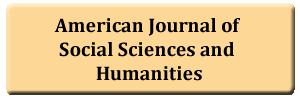Impact of institutional and individual factors on students' academic integrity
DOI:
https://doi.org/10.55284/ajel.v9i1.1030Keywords:
Academic integrity, Course of study, Public and private schools, Religion, School location.Abstract
The purpose of the study was to determine how specific institutional and individual variables determine the academic integrity of students in high schools. These factors are school location and type, religion, and course of study. In the extant research literature, these factors have not been given adequate attention with regards to their relationship with students' academic integrity in the same way that their interaction with academic achievement has been researched. The survey research design was used in the study. The authors did not manipulate or interfere in any way with the subjects, but they were allowed to respond freely to the Academic Integrity Measurement Instrument (AIMI), which is a standardized instrument. The sample consisted of 3142 males and 3708 female students in their final year of senior secondary school in Nigeria. Data was analyzed with an ANOVA. The findings revealed that students' academic integrity significantly varies based on school location and type, religion, and course of study. Each of these variables impacts students' academic integrity to the extent that preventive measures against academic dishonesty should consider these factors. The implications of the findings are that parents, school administrators, teachers, guidance counsellors, and examination bodies should collaborate to restore academic integrity in educational assessments, especially at the high school level, by beaming their searchlights on school locations, school type, and students’ religions and courses of study as potential frameworks for preventing cheating in school examinations.



